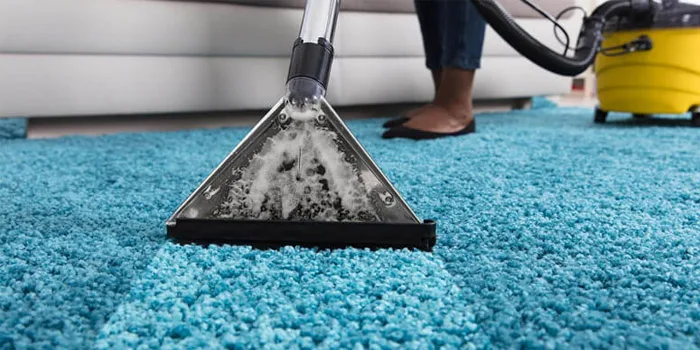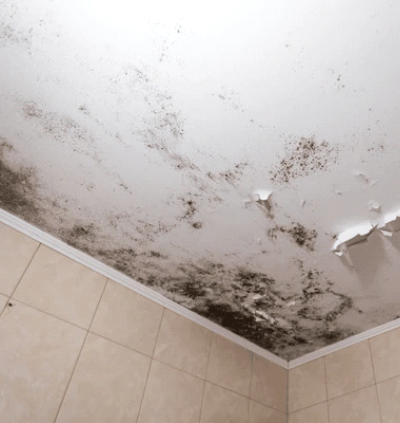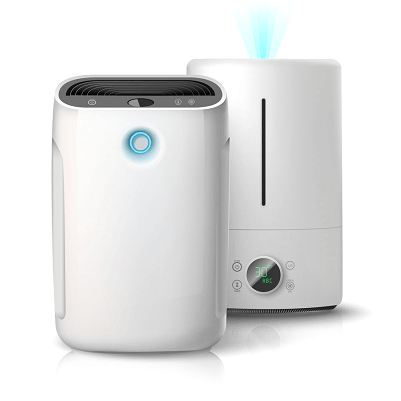The confusion between air purifier vs dehumidifier is very common among people who want to keep their air clean. Since both the devices maintain and improve your indoor air quality, their purpose and function differs. Air purifiers and dehumidifiers are mostly used in poorly ventilated places, but they also work efficiently in spaces with good ventilation.
Whether to invest in an air purifier or a dehumidifier, depends on what issue you’re facing. If you want to remove allergens and bacteria from your air, you need an air purifier. If you live in highly humid places, you need a dehumidifier.
Despite their differences, both devices help maintain your health. An air purifier directly cleans your air, whereas a dehumidifier prevents mold by removing excess moisture, and circulating cool dry air.
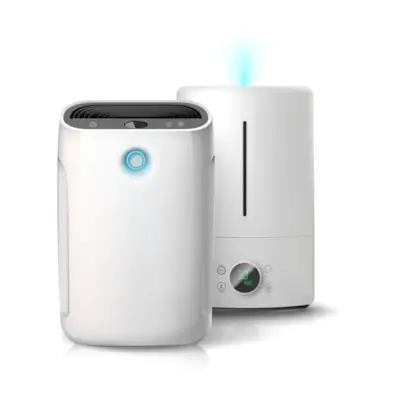
Air Purifier Vs. Dehumidifier - Differences
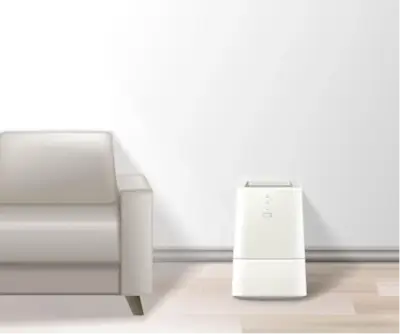
They both suck the air, pass it through filters, and circulate back clean air. An air purifier removes dust particles, mold spores, bacteria, and allergens. It collects the air from the surroundings, filters it and circulates clean air. However, an air purifier has no impact on humidity and moisture. Thus, it is not a solution for mold growth in your house.
On the other hand, a dehumidifier is used to maintain a healthy moisture level in your house. In places with poor ventilation and high humidity, it works by collecting all the excess moisture from the air and giving back dry air. Although it does not remove any allergens, pollutants, or spores from the air, it works best for killing and preventing mold. If the mold is caused by water leak, fix it before you run a dehumidifier. In this way, it helps you maintain a healthy moisture level and keeps you healthy by preventing mold problems.
What Does an Air Purifier Do?
An air purifier combats indoor contamination. It prevents health issues like bacterial infection, virus outbreaks, dust allergies, pollen allergies, and nose and throat irritation. By killing the airborne particles, it helps you breathe in clean air. Due to its health benefits, it’s a popular choice among all office and homeowners.
Types of Air Purifier
There are many types of air purifiers in different sizes and capacities that help to remove indoor air. Depending on your room size, you can choose the one that suits your needs best.
HEPA Air Purifiers
HEPA (high-efficiency particulate air) air purifiers are best for removing airborne allergens, viruses, and bacteria. They are the most effective type found in the market. With highly efficient filters and good suction power, they can trap 0.3 microns or larger particles. HEPA air purifiers are a common choice among people because they can remove 99.9 percent of particles present in the air.
Carbon Filter Air Purifiers
These air purifiers come with activated carbon filters. These filters are especially good at removing volatile organic compounds found in paints, cleaning supplies, furnishings, building materials, and office equipment. Carbon filter air purifiers are also good at removing smoke particles and bad odors.
Ultraviolet-C Air Purifiers
Air purifiers that come with UV type C light are especially good at killing viruses and bacteria. They are used to prevent health issues. In places like hospitals and clinics, people prefer using this type of air purifier to prevent air contamination and disease spread. They are safe to use at home and in offices.
What Does a Dehumidifier Do?
Dehumidifiers are an excellent choice for places with high humidity. They are used in places where humidity levels are above 20%. By sucking excessive moisture and circulating dry air, dehumidifiers kill fungus and all health problems associated with mildew and mold. By killing the fungus, they prevent allergies, stuffy or runny nose, skin irritation, itchy eyes, and breathing problems.
Types of Dehumidifier
Dehumidifiers come in different sizes and capacities. A bigger one is best for bigger buildings. A high-capacity/suction power device is best for climates with high humidity. Depending on the area and levels of humidity, you can choose the type that suits your needs best.
Desiccant Dehumidifiers
These dehumidifiers have anti-humectant properties. They contain desiccant material that not only maintains the levels of dryness, but it also absorbs and kills moisture. When moisture is sucked into the dehumidifier, the desiccant material heats it up and throws it in a tank. They work best in closer areas with high humidity levels.
Compressor Dehumidifier
This type of dehumidifier is mostly used in hot climates. Opposite to desiccant type, this one causes the condensation of moisture vapors. It works by pulling the moisture from the air, cooling it down and collecting it in a tank. A compressor dehumidifier is just as effective as a desiccant one when it comes to killing mold or other fungus types.
Benefits of Air Purifier vs. Dehumidifier
Apart from their health benefits, both devices have several other benefits for you and your home.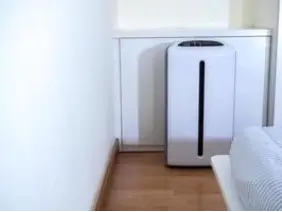
Dehumidifiers Benefits
1. Removes Excess Moisture
It helps reduce excess moisture from the air. By doing so, a dehumidifier prevents property damage. You will not have to worry about damp furniture, walls, or ceilings.
2. Mold Prevention
Mold grows in dark and damp places. It reduces the humidity level. Humidity levels below 50% kill all fungus types. By killing and preventing mold, a dehumidifier keeps you healthy and away from mold-related illness.
Air Purifier Benefits
1. Allergen Removal
Air purifiers remove allergens and pollutants from the air. They prevent and kill any bacteria and viruses found inside your home.
2. Particle Filtration
Some air purifiers are capable of trapping very small particles. They are efficient and prevent viral and bacterial contamination by trapping small particles.
3. Odor and Chemical Reduction
Air purifiers can help reduce odors and trap volatile organic compounds (VOCs) and other harmful chemicals. By doing so, they reduce respiratory problems in sensitive individuals.
Similarities Between Air Purifiers And Dehumidifiers
Despite the slight difference between the two devices, they share many similarities making them ideal for maintaining indoor air quality.
Allergen Reduction
Both air purifiers and dehumidifiers protect you from allergens. Air purifier does so directly, by collecting particles from the air. Dehumidifiers do this indirectly by bringing down moisture levels. Low humidity kills the source of allergens such as mildew and mold.
Mold Prevention
Dehumidifiers kill and stop the spread of mold by bringing down moisture levels. Air purifiers trap mold spores and prevent its spread.
Odor Removal
Carbon Filter air purifiers remove odor from your air and circulate fresh air. Dehumidifiers reduce damp, musty odors by bringing down humidity level and sucking excessive moisture from the walls, floors, and ceilings.
Conclusion
Both air purifiers and dehumidifiers are a must for any indoor space. They have many health benefits and come in different sizes. You can choose an air purifier for improving your air quality or you can pick a dehumidifier to combat excess moisture.
However, if you see that your air purifier and dehumidifier are not effective in combating bad odor, mold growth, and damp spots, it means there are bigger problems that you need to solve. Probably a water leak or mold in the attic or crawl space is causing the issues. At this point, you need to hire water damage and mold inspection companies.
Which Areas We Serve in South Florida?
- Hollywood
- Davie
- Miami Beach
- Weston
- Hallandale Beach
- North Miami Beach
- Sunrise
- Tamarac
- Coconut Creek
- Fort Lauderdale
- Miami
- Boca Raton
- Hialeah
- Margate
- Pembroke Pines
- Dania Beach
- Lauderhill
- Delray Beach
- Pompano Beach
- Deerfield Beach
- Coral Springs
- Plantation
- Doral
- Aventura
- Miramar
- Sunny Isles Beach

